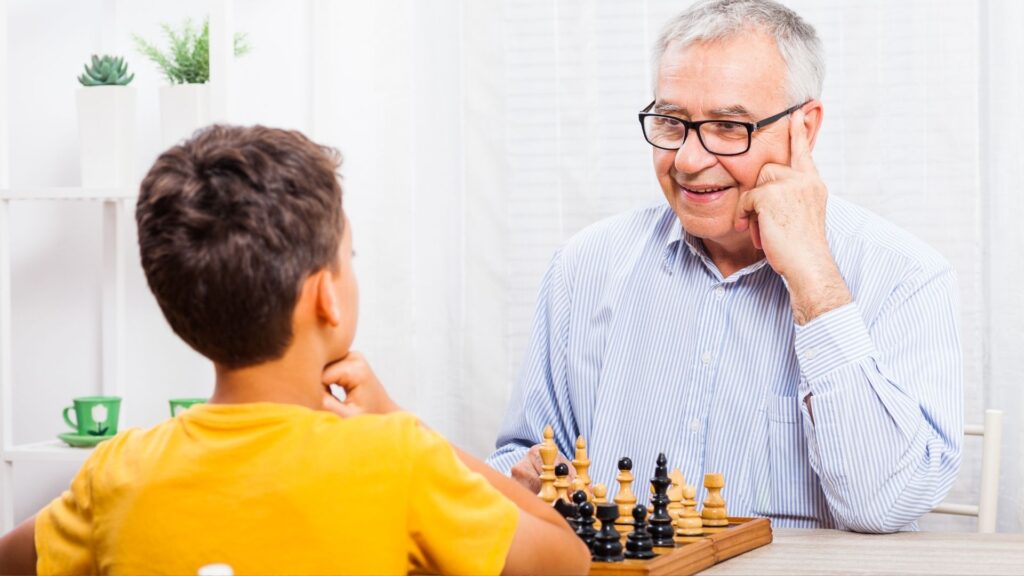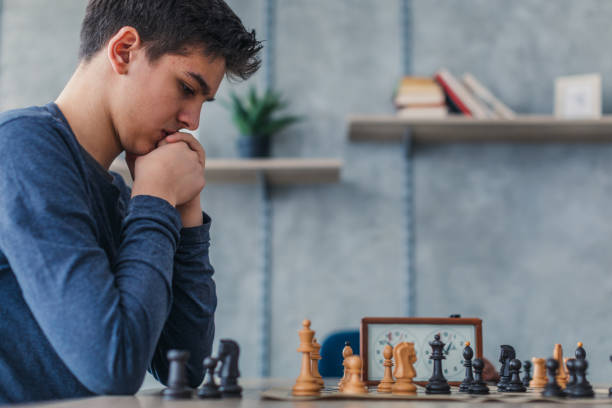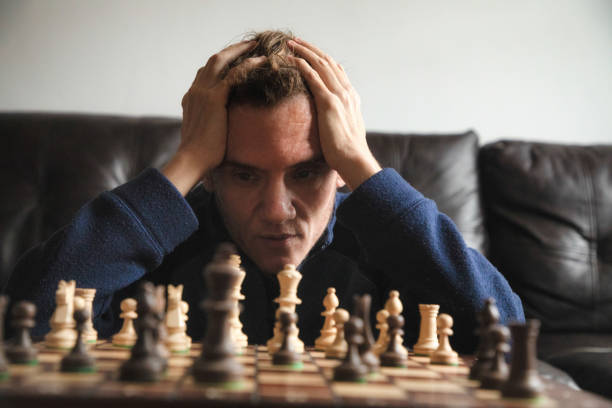How long it takes to learn chess is a question that is a question people often ask. I’ve been playing for years and still learning the game. The answer, of course, is subjective and depends on the person trying to learn.
In general, most people can learn chess relatively well in six months. Some people may pick up chess reasonably quickly, while others may find it more challenging to learn chess. However, to learn the game in the shortest amount of time, you need to play it often and with focus.
The time it takes to master and learn chess is very popular among ambitious players who are serious about developing their games. Is there some magic number of hours you need to invest daily to become a FIDE Master or a Grand Master? Does it work the same for all chess players?
In this blog post, we will provide a comprehensive guide on how long it takes to learn chess- as well as some tips to help you get started.

Contents
How Long Does It Take to Learn Chess and Its Basics?
All answers to this question are subjective in most cases. Many chess players overlook the fact that the critical point is not necessarily how many hours it takes to learn chess, but rather how and what exactly to learn chess.
You can spend many hours learning chess: get completely exhausted and not improve at all. It’s more important to focus on the ‘quality’ element of training rather than the time you put into it.
Every chess player is different, and you need to figure out what kind of work is best for you. If you know, you can work harder, and you know what you need to focus on, do it. Keep in mind that training quality is much more important than quantity, and at some point, you will reach your goals.
Chess is like all art and all science; as they say, it only develops with practice and study. However, the basics of chess include knowing about the board, the pieces, their positioning and movements, and a few tips and tricks.
These basics of chess can be learned in half an hour, and a basic level can be achieved within a few weeks with good practice, but it’s not as easy as it may sound because, with countless chess moves, you will keep learning for the rest of your life to master it.
Is it Hard to Learn Chess? How you Achieve the Title of Chess Master

An old Indian saying states that “chess is an ocean where an elephant can sink, and a fly can float.” No matter how much energy you put into chess, the game has enough complexity and challenges that make it hard to learn to play.
It takes time, patience, and a lot of practice combined with the study because chess is a sea of chaos and possibilities, where two minds duel in search of victory. It won’t help to have very tactical and simple moves or hacks, you have to have a strategy, and for that, this strategy has to be well thought out, and preferably it has to be disguised.
All the time, you will have to readjust or even modify the strategies. Knowing some common tactics and formations can help, but… they don’t guarantee victory because they are previously formulated tactics, and each match is organic and unique, and that’s why they can work and they may not. And this makes it hard to learn chess and play.
It’s difficult to become a chess master. But it is possible. As per FIDE’s, most masters take 8-12 years or 10,000 practiced hours before they earn the title of a Chess Master.
Can Chess be Self-taught?
With so many available resources, chess can be self-taught. There are printed and online formats to help you excel in the game. Solved moves, critical historical matches, and former grandmasters’ work are available that comprise a lot of self-taught knowledge.
Then there are online Chess formats, tournaments, and practices that help you learn at your pace, but all it takes is a deep study, a lot of time, and super dedication to learning chess by yourself.
How can I Practice Chess by Myself?

In a traditional chess game, one player must anticipate the other’s move — and for that, it takes concentration, strategy, patience, and practice. If you intend to develop these characteristics, you might practice chess by yourself. Here’re a few generic tips for your understanding ;
· Assemble the board. Chess (alone or not) is a slow game in which each participant must think through their strategy calmly and logically. This particular game will take days or even weeks, set up the board in a convenient, non-trafficked location. Place every individual piece in its corresponding place.
· Use some object to know “whose” it is. You may have trouble remembering whose turn it is (i.e., whether you have to move the black or white pieces). In that case, use a small object, such as a coin, to keep an eye out. Move it from side to side as you progress through the turns.
· Prepare yourself mentally not to lean one way or the other. When a person plays chess with himself, he always understands the opponent’s moves and reasoning. You may even want to use this to your advantage, but it’s no use. Be indifferent to which side wins the entire match and just try to master the strategies, the moves, and so on.
· Don’t make identical plays on both sides.
· Preview your opponent’s moves. Always stop and think for a moment before making your move.
· Attack, your opponent. The middle part of the game is for each player to attack the other strategically. During this period, be patient and pay close attention to the other pieces. If your opponent can’t protect one, take advantage and capture it at once.
· Learn to let go of strategic pieces. In the middle of the game, you and your opponent will capture each other’s pieces — that is, there will be practically an “exchange.” Some of them are even necessary and logical, but others will only harm your performance and your king. So always think about whether it’s worth making such a move before you even put your hand on the board.
FAQ
Does Chess Increase IQ?
Playing a lot of chess will make you very good at chess (if you train it right). But it won’t increase your general intelligence. It can stimulate your brain to develop critical new skills associated with intelligence, so your intelligence standard can be modified, but no study so far has linked playing chess to increasing IQ.
